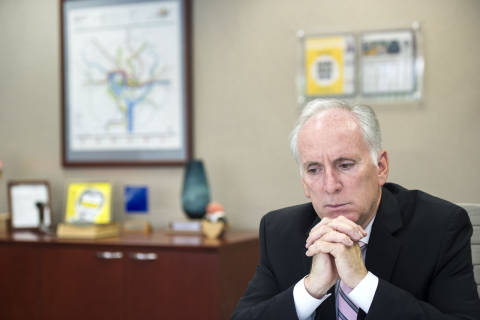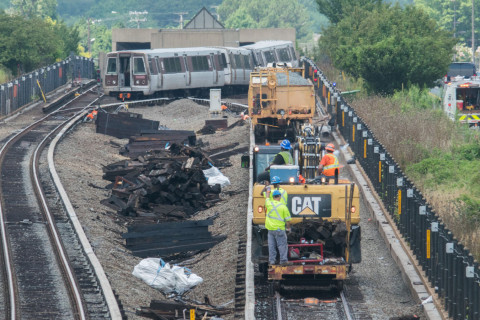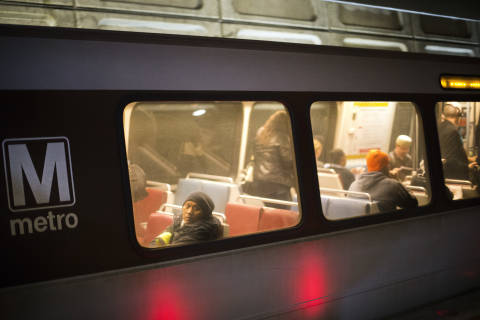WASHINGTON — Amid tough contract talks that could include cuts, some members of Metro’s largest union are trying to oust their president.
Past attempts at bringing internal union charges against Jackie Jeter at regular union meetings like the one scheduled for Tuesday night and Wednesday morning have fallen short of the supermajority needed to go forward.
Amalgamated Transit Union Local 689 is facing a separate U.S. Department of Labor lawsuit that charges an election last year was not conducted properly. Lawyers are due to update a judge on the status of that case next week.
“The union needs to be held accountable,” said Sidney Davis, one of the union members who filed a complaint that led to that lawsuit.
He said he believes more accountability in the union could also help with safety and other improvements in the Metro system through improved relationships between workers and management.
“There’s no transparency, so the public don’t know what’s going on inside the union,” Davis said.
Union bylaws make many actions and internal processes private, including financial and negotiating positions, some of which could impact contract talks.
Michael Metcalfe El, a supporter of the effort to oust Jeter who has worked in various positions at Metro since 1998, said it is unlikely the charges of “irregularities” in union operations will get a supermajority this week.
But he argued it is important to push forward even amid contract talks with Metro management.
Metcalfe El said when he first started his career with Metro, he would recommend it to his children as a good job.
“I won’t do that now,” he said. “But it’s not because of Metro, it’s because of the union. The current union situation.”
Last month, Jeter told reporters that Metro management was responsible for the system’s problems by creating the conditions that have led to a sharp drop in ridership in recent years.
“They have failed to manage the system the way it’s supposed to be, and they are saying the problem is labor costs,” she said.
General Manager Paul Wiedefeld has said his budget-cut proposals trim will be felt across the board, including fare hikes, service cuts and cutting the jobs that would no longer be needed with reduced service hours and frequencies.
The union’s contract expired this summer, and both sides have indicated negotiations could continue for months more. Jeter and other union leaders have become much more publicly vocal in the last few months.
Davis, who ran against Jeter in the election last December, retired from Metro Nov. 1 after more than 13 years.
Metro’s so-called “safety culture” has been an issue for at least that long.
At a congressional oversight hearing Friday, Federal Transit Administration Executive Director Matthew Welbes said Metro still has work to do.
“FTA has observed important steps by WMATA leadership prioritizing safety over revenue service, but establishing and ensuring an enduring safety culture remains a critical task,” he said.
A union representative, Second Vice President Raymond Jackson, called it a “very serious” culture problem.
“You can’t discipline your way to safety,” he said. “But if we sit down, the union and management come together, I believe that we can fix this problem,” Jackson said.









